Note from Lutheran CORE’s Executive Director: We thank God for His faithfulness and blessings as we observe the Twentieth Anniversary of Lutheran CORE. Many thanks to Mark Chavez, first Executive Director of Lutheran CORE, for his many years of providing inspiration, guidance, and leadership for our ministry. Pastor Chavez also previously served as Director of the WordAlone Network and NALC General Secretary and now serves Reformation Lutheran Church in Lancaster, Pennsylvania (NALC).
We also thank him for writing this account of the sequence of events that led to the formation of Lutheran CORE. As we think of the passion, commitment, and hard work of so many, including Mark Chavez, retired ELCA bishop Paull Spring, and Jaynan Clark, former president of the board of the WordAlone Network, we are reminded of the words of the writer to the Hebrews. “Therefore, since we are surrounded by so great a cloud of witnesses, let us run with perseverance the race that is set before us, looking to Jesus, the pioneer and perfecter of our faith.” (Hebrews 12: 1-2)

Lutheran CORE formed in November 2005, but the seeds for its formation were planted many years prior. The seeds were sown in 1982 when the Lutheran Church in America, the American Lutheran Church and the Association of Evangelical Lutheran Churches established the Commission for a New Lutheran Church (CNLC). Seventy representatives from the three churches developed the proposal for the new church, now known as the Evangelical Lutheran Church in America (ELCA).
The 70 leaders were almost evenly divided on the authority of Scripture over all matters of faith and life. Some upheld the authority of Scripture and others put themselves in authority over Scripture. The proof of that came in February 1984 when the CNLC met in Minneapolis, MN to work on the draft constitution for the new church. A layman representing the AELC proposed editing the first sentence in the draft Confession of Faith. It read, “On the basis of sacred Scriptures, the Church’s creeds and the Lutheran confessional writings, we confess our faith in the one God, Father, Son and Holy Spirit. . .” He proposed substituting “faith in the triune God” for “faith in the one God, Father, Son and Holy Spirit.” He opposed using masculine language with reference to the persons of the Trinity, thereby rejecting God’s revealed, proper name.
His motion was supported by 30 CNLC members, and opposed by 33. Thus the three churches forming the new church were each internally divided on the authority of Scripture. It was an ominous sign of how deeply divided the ELCA would be at its start in 1988, and in fact the division surfaced quickly.
The ELCA Conference of Bishops issued a pastoral letter in 1989 admonishing ELCA pastors to baptize only “in the name of the Father, and of the Son, and of the Holy Spirit.” The bishops were alarmed that a growing number of pastors, taught by a growing number of seminary professors, were intentionally baptizing using words without masculine references to the Trinity.
The next year the ELCA appointed a sexuality task force with 16 members in favor of sexual relationships well beyond the biblical norm of one man and one woman for life. Only one member, the Rev. Dr. Larry Yoder, supported the biblical norm, and he was a late addition to the task force
The warning signs were so obvious that in 1990 more than 1,000 ELCA members – bishops, pastors, theologians and lay leaders – attended “Call to Faithfulness,” a theological conference sponsored by three independent Lutheran theological journals affiliated with the ELCA at St. Olaf College in MN. Almost all the attendees were concerned that the Word of God was being silenced in the ELCA.
A longer account would provide more details of the fundamental division in the ELCA, and attempts by a number of groups and individuals to call attention to the crisis. For now it is sufficient to note that it was only a matter of time before a reform movement like Lutheran CORE would emerge in the ELCA.
Jumping ahead to 2003, one man, retired ELCA Bishop Paull Spring, planted the seed that would become Lutheran CORE. He was a visitor at the August 2003 ELCA Churchwide Assembly (CWA) in Milwaukee, WI. The leaders of the WordAlone Network were also visitors at the Assembly. Bp. Spring approached Pr. Jaynan Clark, WordAlone President, and asked if the WordAlone Network would be interested in forming a coalition to oppose the ELCA’s sexuality recommendations that would be presented at the 2005 CWA in Orlando, FL.
The ELCA, as it had done in 1990 with the first sexuality task force, stacked the second sexuality task force heavily in favor of approval of sexual relationships beyond the biblical norms in 2002. The task force was charged with making recommendations to the 2005 CWA, so Spring knew the recommendations would oppose the authority of Scripture.
Bp. Spring’s initiative was remarkable because he had been one of the most prominent ELCA leaders in support of the full communion agreement between The Episcopal Church USA (TEC) and the ELCA. WordAlone led the opposition to the full communion agreement, first at the 1997 CWA in Philadelphia, and then the 1999 CWA in Denver, where he and Pr. Clark were on opposite sides.
However Bp. Spring knew that he and WordAlone agreed on the authority of Scripture. He met Pr. Clark in fall 2002 at a Christian sexuality conference hosted by Ruskin Heights Lutheran Church in Kansas City, MO. About 350 people were at the conference. WordAlone members accounted for a third of the attendees. The main concern of the attendees was upholding the authority of Scripture in the ELCA as the norm for sexuality and sexual relationships.
Clark accepted Spring’s offer to form a temporary, single issue coalition that would address only the sexuality recommendations going to the 2005 ELCA assembly. They agreed to invite significant ELCA members to a meeting to see if it were possible to form a coalition across the line of division over ecumenism. Bp. Spring invited the leaders he thought should be there and WordAlone did the same. The people invited were retired bishops, theologians and pastors. They represented all the confessional Lutheran camps in the ELCA, from the high church Evangelical Catholics to the low church charismatic Lutherans.
More than 35 people were invited, 25 of whom attended the meeting at Luther Seminary in St. Paul, MN September 19-20, 2003. Despite their disagreements on some matters (ecumenism, worship style and piety), within 90 minutes there was strong consensus that they could work together to form a coalition that would work only until the conclusion of the ELCA’s 2005 CWA. The coalition was named Solid Rock Lutherans, and the Rev. Dr. Roy Harrisville, III, was chosen to serve as its Director.
Solid Rock was successful in organizing opposition to the sexuality recommendations presented to the 2005 CWA in Orlando, FL. The recommendation to approve of ordained and lay ministers in same-sex relationships was defeated 490 – 503. However, an ambiguous recommendation on the blessing of same-sex unions was approved 670 – 323, which was a strong indication of where the ELCA was headed on the sexuality issues.
Though Solid Rock was focused only on the sexuality issues, as people in the coalition got to know each other, they realized they shared other concerns about the ELCA. One concern was the ELCA’s Renewing Worship project, which also made recommendations at the 2005 assembly. People in Solid Rock Lutherans called attention to the editing of the Psalms and hymns to avoid using masculine pronouns with reference to the three persons of the Trinity in the Renewing Worship materials. Voting members associated with Solid Rock Lutherans at the 2005 CWA called for a delay of considering the Renewing Worship project until the 2009 CWA. However the CWA overwhelmingly approved moving forward with the project, which eventually led to the new hymnal, Evangelical Lutheran Worship.
Because of the good experience in Solid Rock Lutherans, after the 2005 CWA Bp. Spring asked if the WordAlone Network would be interested in forming a new coalition that was not single issue and not temporary. He proposed a coalition for reform that would address the major biblical and theological errors in the ELCA. WordAlone responded positively, and invited Spring and other leaders in Solid Rock Lutherans to its Fall Theological Conference in Brooklyn Park, MN, November 6-8, 2005.
Prior to that conference, Solid Rock Lutherans held its final meeting at Ruskin Heights Lutheran Church in Kansas City, MO September 27-28, 2005. Spring’s proposal for a new coalition generated much discussion and debate. There was still a fair amount of suspicion and distrust of the WordAlone Network because of the disagreement over the full communion agreement with The Episcopal Church. The conversation was candid and healthy. Working through the disagreement was critical because Spring’s intention was to form a coalition “with and within the WordAlone Network.” (Dec 2005 letter from Lutheran CORE steering committee)
Bp. Spring had gained the trust of all at the meeting, so his leadership was crucial in convincing people to move forward with the new coalition. Spring came to the WordAlone conference in November with a resolution calling for a coalition for reform. His proposal was nearly unanimously endorsed by the attendees, which included WordAlone members and leaders from Solid Rock Lutherans. Lutheran CORE was formed as a coalition of pastors, laypeople, congregations, and reforming movements within the ELCA with the goal to reform the church under the Word of God and according to the Lutheran Confessions.
Lutheran CORE or a movement like it might not have emerged without Bp. Spring’s foresight and leadership. His initiative to form Solid Rock Lutherans was critical in bringing together disparate reform groups within the ELCA. Many of the people in those groups had never met the people in the other groups. Solid Rock Lutherans brought them together, creating the trust and good will needed to form Lutheran CORE. Praise the Lord for Bp. Spring’s leadership.
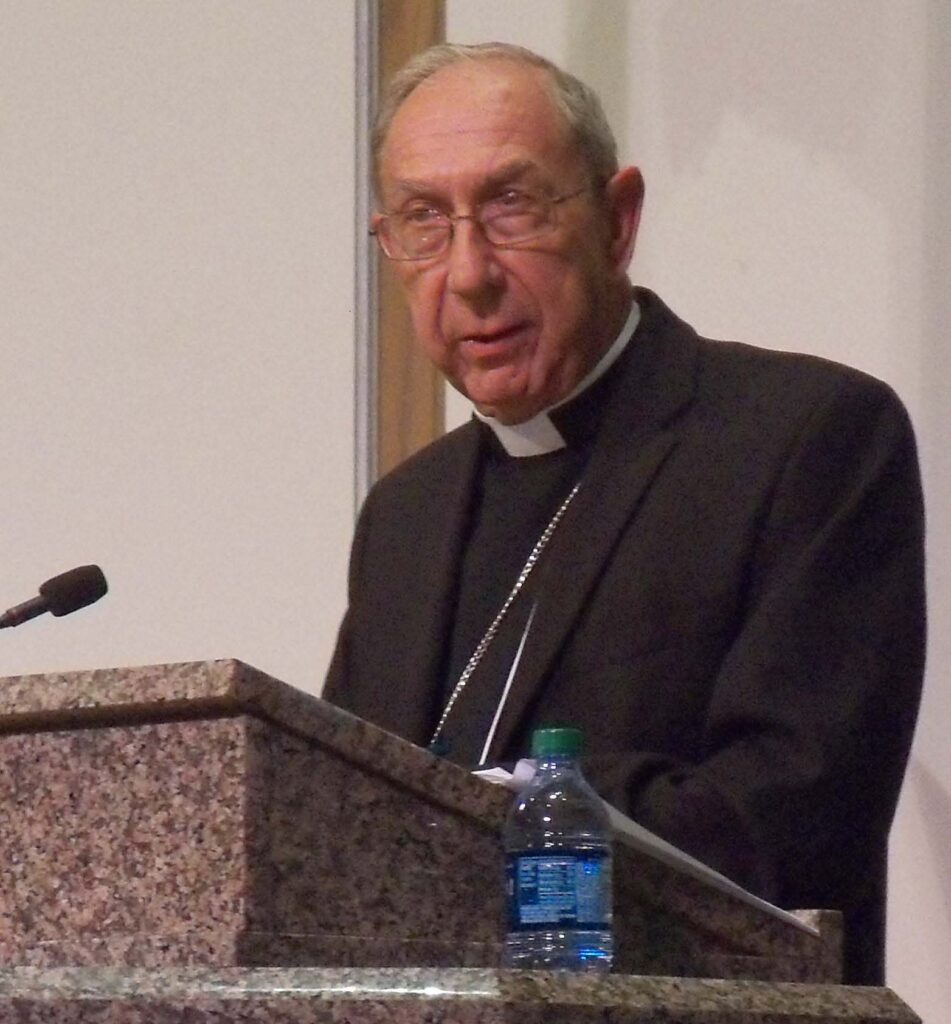
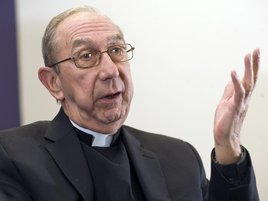

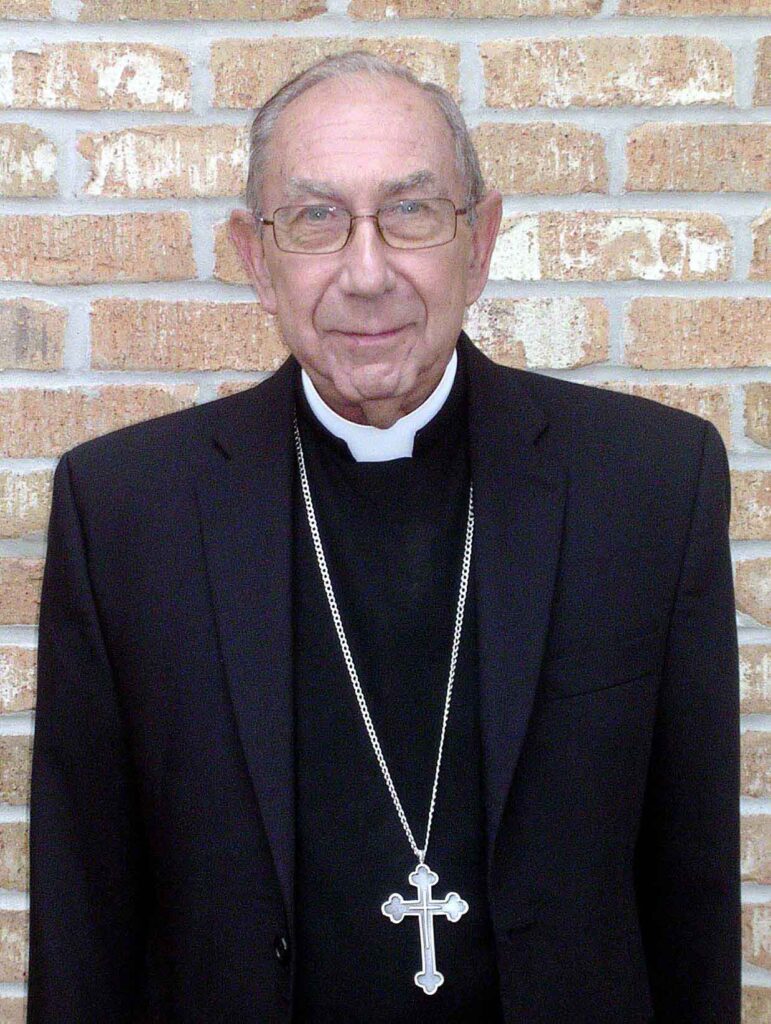

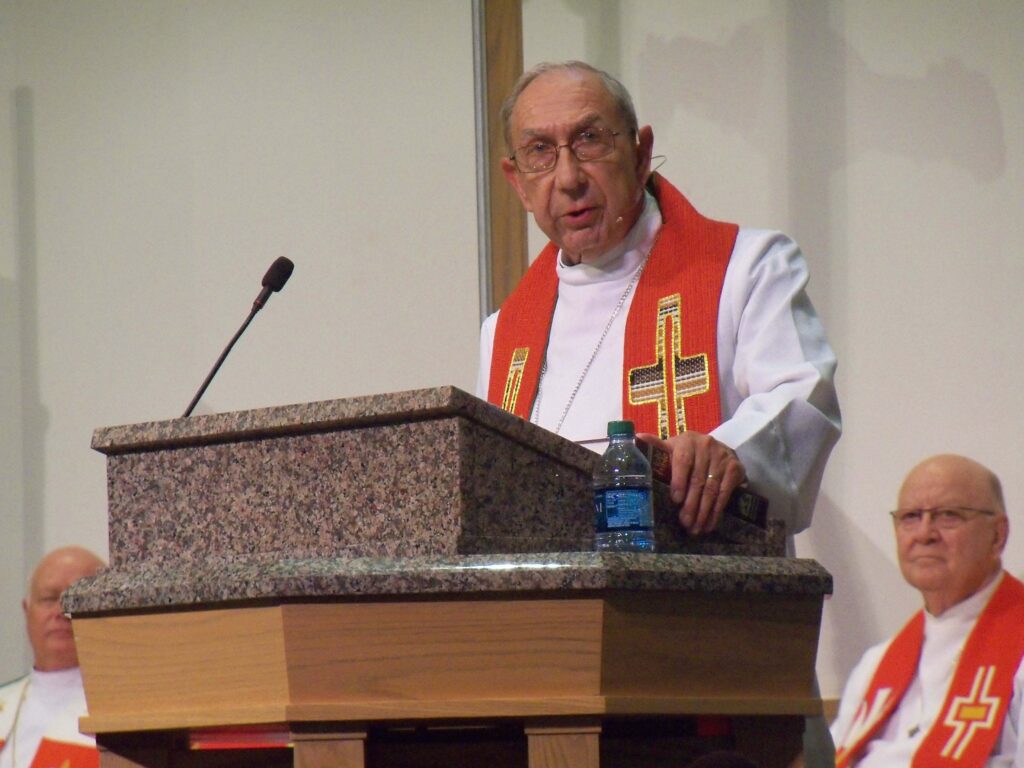
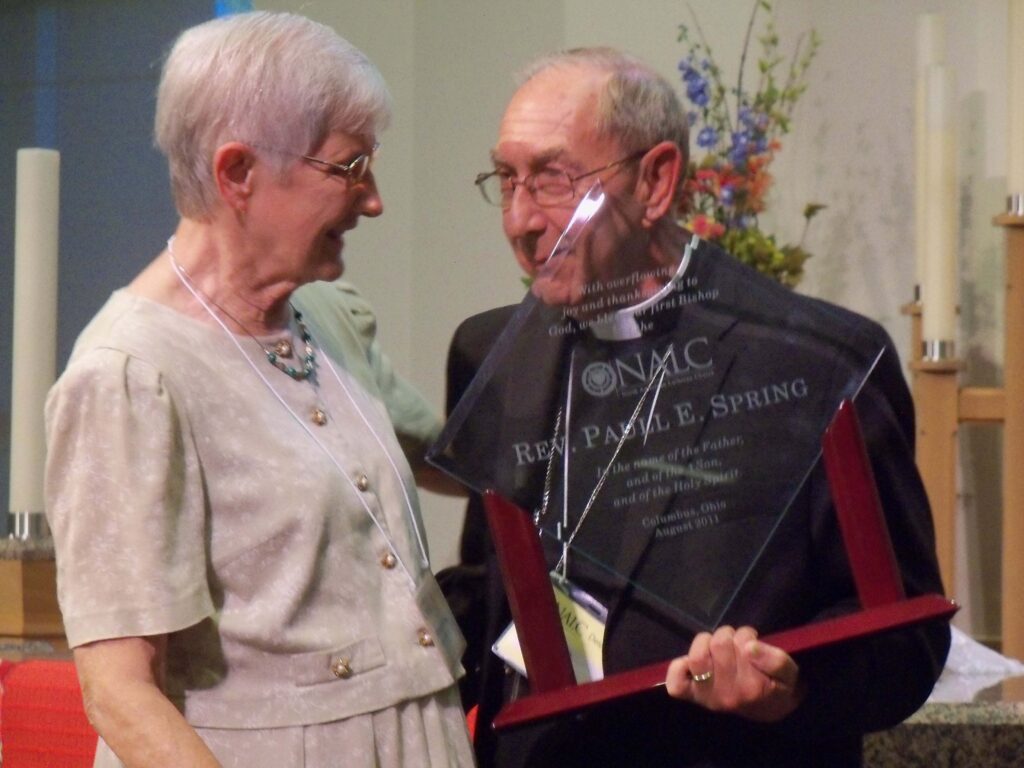


















Thank you for the background of events leading to the changes in the ELCA. As a member of one of the larger Lutheran churches in Denver, CO and I was active in the church as a council member, member of a call committee, Sunday school teacher, and confirmation instructor, yet I was unaware of what was going on with the leadership of the ELCA. I left the ELCA in 2008 to become a member of a LCMS Church. My former ELCA Church in Denver has lost a significant number of members due to the changes in doctrine. Reading the history of how the changes came about without significant knowledge and input from Church membership is revealing and I am saddened by the impact it has had on the ELCA.
I appreciate what CORE is doing help ELCA Churches leave to join other organizations faithful to Lutheran traditional doctrine.
It was a blessing to read and reminisce about Bishop Spring. My late wife and I were card-carrying members of Word Alone. We are now members of Saving Grace, a congregation of Lutheran Churches in Mission for Christ.
I was very active in the Word Alone movement in it’s inception following the “Call to Faithfulness” conference while serving in California, however when I left the ELCA in 1995, I became less aware of these further steps of faithful action. I am thankful for Lutheran Core.
In the early days (circa 2014) of the collaboration between the North American Lutheran Seminary (NALS) and the then Trinity School for Ministry (Now TAS, Trinity Anglican Seminary), I was minimally informed of the struggles of the Lutheran context, having been too easily distracted by and involved in the struggles of the Episcopal/Anglican world. Then I met Bishop Spring. I was overwhelmed by his sincerity and integrity with every word he spoke (including his concern about a place to have a smoke!). I was thrilled to share in partnership with a man of faithfulness and modest character. But I yearned to learn more about the context, which acted as the crucible for this man’s leadership. This essay, celebrating CORE’s faithfulness and history, was very helpful to me. It is a remarkable and inspiring story. Thank you for sharing it.
Thank you Mark. A thoughtful, beautiful and accurate remembrance. I just want to add that Bishop Spring had the highest regard for you as a person of character, faith and ability to serve in his “Army”…oops, Air Force! I will forever be grateful to you and Paul for the time and confidence you placed in that small group of renegades in Upstate NY, especially here in Rochester and Buffalo. Word Alone, because of you both, was never really ‘alone’. Blessings and love in Christ our Lord.
Mike Lubas
Rochester NY
Thank you for the history of how Lutheran Core was formed. I also didn’t know how quickly issues were discussed to cause division in the ELCA. Thank you for continuing to work for the truth of scripture.
Please continue the story of the Lutheran Reformation in our day. Thank you Mark
Rev, Chavez: Thank you for your sharing of the history of this issue within the ELCA. It reminds many of us of what was shared during the debates and discussions before, during, and after the 2009 Churchwide, in which my wife and I were serving in as voting members, as well as meetings at Fisher’s, Mansfield, Ohio, and the charter meeting in Grove City for the NALC founding. Your continuing service to Biblical Truth, as also experienced by Steve Shipman, Dennis Nelson, Jeff Morlock, and so many others is greatly appreciated. It is heartening to know that you all are there in faithful service as those of us without an orthodox church home available go forward seeking a church home that is faithful.